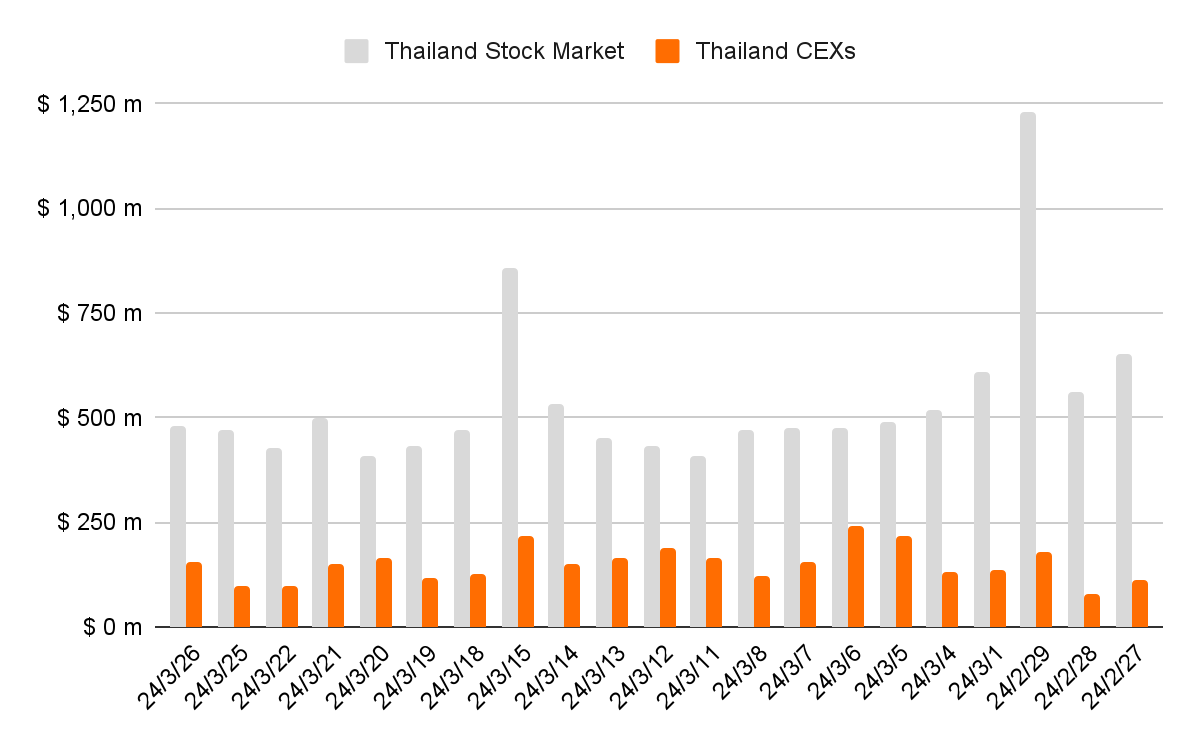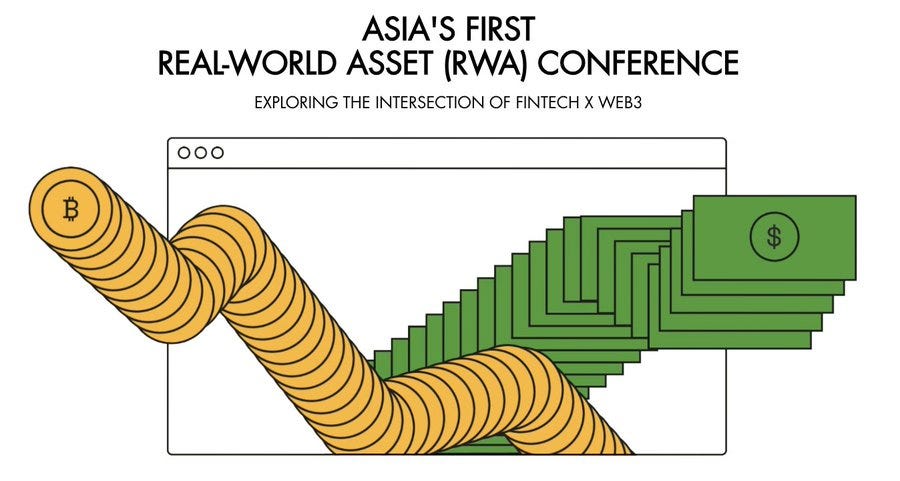
TL;DR
While cryptocurrencies are gaining recognition as "assets" on par with traditional financial assets, the market is still in its infancy compared to traditional financial markets.
However, the recent explosion of the Korean cryptocurrency market has been impressive, with daily trading volumes exceeding those of the KOSPI and KOSDAQ. Other countries such as Japan, Indonesia, and Thailand are also seeing significant growth in cryptocurrency trading volumes.
This shows that crypto has become a major asset class alongside traditional financial assets. It will be interesting to see how the crypto market bridges the gap with traditional financial markets in the future.
Introduction
Since the approval of the Bitcoin ETF, cryptocurrencies have moved beyond mere speculation and have been recognized as "assets" on par with traditional financial asset classes. However, despite these changes, the size of the crypto market is still in its infancy compared to traditional financial markets. For example, the total market capitalization of the global stock market is $109 trillion, while the total market capitalization of the cryptocurrency market is only $2.7 trillion.
Recently, the cryptocurrency market has shown signs of resurgence, leading some analysts to posit that its growth potential could rival that of traditional financial markets. This report will delve into a comparative analysis of the activities within cryptocurrency markets versus traditional financial markets. In particular, we compare the trading volumes of crypto exchanges and traditional stock markets in each country to provide insights into the current position and potential of crypto markets.
1. Crypto surpasses stocks in South Korea
The South Korean cryptocurrency market recently achieved a significant milestone by exceeding the daily trading volumes of both the KOSPI and KOSDAQ, underscoring the considerable interest and enthusiasm for cryptocurrencies among Koreans. KOSPI (Korean Composite Stock Price Index) is a representative stock market in Korea where large companies are listed, so the fact that the cryptocurrency market has surpassed the index is significant.
This phenomenon is more remarkable when considering that KOSPI and KOSDAQ accommodate substantial institutional and foreign investor participation. In contrast, the Korean cryptocurrency market is limited to retail investors residing in Korea.
The prevailing enthusiasm for the cryptocurrency market among Koreans is in line with the distinctive investment appetite of Korean retail investors. As detailed in our earlier report, "4 Characteristics of the Korean crypto market," there is a pronounced preference among Koreans for so-called "lottery-type stocks" — assets perceived to offer the potential for substantial returns. This inclination towards high-risk, high-reward investments is mirrored in the stock market dynamics, where the KOSDAQ, known for its higher volatility compared to the KOSPI, records greater trading volumes.
2. Japan's crypto trading volume pales in comparison to stock market
Despite Japan's active government-led approach to the cryptocurrency market, its trading volume remains modest, especially when juxtaposed with that of South Korea's cryptocurrency market. A recent analysis of the average daily trading volumes within a given month reveals that South Korea's cryptocurrency market experiences approximately 16 times the trading volume observed in Japan. This stark contrast indicates the differing market activity levels and investor engagement between the two countries.
Nevertheless, the Japanese crypto market itself has been growing at a significant level. The average daily trading volume of the Japanese crypto market has more than tripled in comparison to the same period last year. While the Japanese stock market still surpasses the crypto market in trading volume, the narrowing gap between the two is a testament to the crypto market's robust expansion and increasing investor interest.
Furthermore, the Japanese government's proactive stance in facilitating the growth of the cryptocurrency market, particularly through the easing of regulatory barriers, is poised to further bridge the trading volume gap between cryptocurrencies and the stock market.
3. Indonesia has more investors in the crypto market than the stock market.
Like Japan, the Indonesian market exhibits a pronounced disparity in trading volumes between the stock and cryptocurrency markets. This is also because institutional and foreign investors dominate the Indonesian stock market, while cryptocurrency exchanges are limited to retail investors.
While the stock market has a higher trading volume, the cryptocurrency market in Indonesia stands out for its sheer number of retail investors, significantly surpassing that of the stock market. The Indonesian stock exchange reports approximately 5.25 million registered investors. In contrast, the crypto market boasts around 10 million investors, which expands to 18 million when including duplicate accounts.
The actual trading volume of crypto assets in Indonesia is likely to exceed the figures captured in aggregated data, due in part to the decentralization of trading activities. High taxation on cryptocurrency transactions on local exchanges has led many investors to turn to global exchanges as a tax avoidance strategy. Furthermore, the utilization of decentralized exchanges (DEXs) may contribute to the diversification of trading volumes.
4. Thailand crypto market shows high growth potential
Thailand has the second smallest difference in trading volume between its stock and crypto markets among the countries mentioned above. An analysis of the average daily trading volume over the past month reveals a 10x difference in Indonesia, while there is just a 3x difference in Thailand. This comparison highlights a relatively higher activity level in Thailand's cryptocurrency market.
Thailand distinguishes itself as a jurisdiction where initial coin offerings (ICOs) are legal, accompanied by a variety of initiatives spearheaded by traditional financial institutions. This unique landscape suggests that the gap between the stock market and cryptocurrency markets could narrow even further when considering the inclusion of diverse crypto-related trading volumes that occur outside of conventional crypto exchanges.
Furthermore, the recent election of a crypto-friendly prime minister has notably raised expectations for a revitalization of Thailand's cryptocurrency market. The upcoming Southeast Asia Blockchain Week 2024 is anticipated to showcase this renewed enthusiasm, underscoring the need for continued observation and analysis of Thailand's evolving cryptocurrency market in the coming days.
Closing thoughts

As cryptocurrencies gain recognition as institutional assets, the level of interest in them is at an all-time high. In South Korea, the cryptocurrency market has demonstrated significant growth, with daily trading volumes surpassing those of traditional stock markets like the KOSPI and KOSDAQ. Furthermore, while the stock market experiences the "Korea Discount" due to geopolitical risks, the cryptocurrency market is distinguished by the "Kimchi Premium" craze.
While Japan, Indonesia, and Thailand have not yet surpassed their traditional financial markets in terms of trading volumes, the growth witnessed within their cryptocurrency markets is also significant. This growth underscores the transformation of cryptocurrencies from speculative assets to a major asset class even within the traditional financial markets. The trajectory of this evolution and how these emerging cryptocurrency markets will continue to close the gap with established traditional financial markets make for an intriguing area of observation in the future financial landscape.
Get 20% off your SEABW ticket today!
Join us at the biggest blockchain event of the year in Southeast Asia! This is your chance to connect with industry leaders, explore innovative blockchain solutions, and engage in valuable networking opportunities. The event runs from April 22nd to 28th in Bangkok.
Exclusive Offer for Our Readers: Use code TIGERR20 to receive 20% off your general admission tickets. Tickets are limited — secure yours now to ensure your spot at this event. (Discount automatically applied through the link below).
Get 30% off the biggest SEABW side event: ONCHAIN 2024
Tiger Research is a proud media partner of ONCHAIN 2024.
As Asia’s first Real-World Asset conference, the event will feature speakers including leaders from global financial institutions, leading RWA protocols and regulators.
Get a glimpse into the future of RWA tokenisation at ONCHAIN 2024: April 26th, Bangkok!
Enter code “tiger30off” to receive 30% off your tickets to the event.












